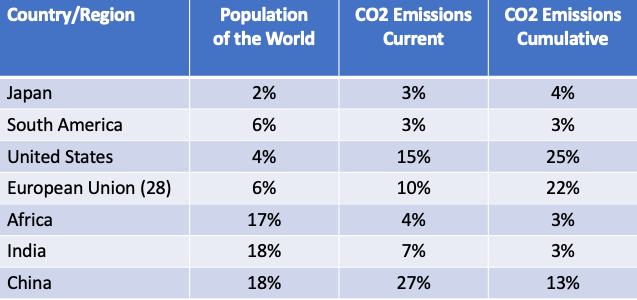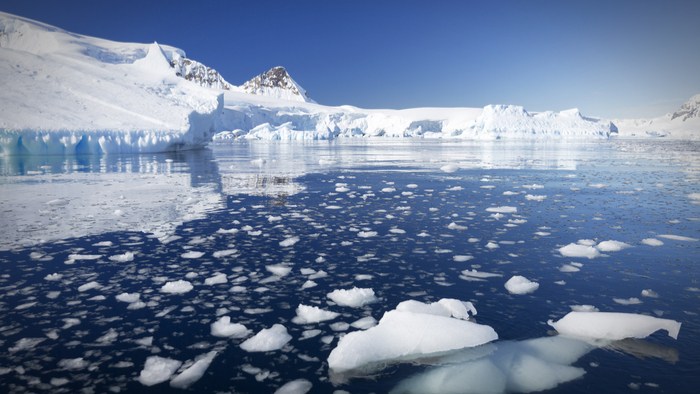Clever anti-environmentalists like Bjorn Lomborg or Michael Shellenberger are not climate deniers, they clearly recognise climate change is ocurring. But they disagree on the priority that it should be given, amongst the many other challenges humanity is facing, and they contest the policies that are being advanced to reduce global greenhouse gas (GHG) emissions.
And, they are not nobodies. Bjorn Lomborg is the founder and president of the think tank Copenhagen Consensus Center and Michael Shellenberger is cofounder of Breakthrough Institute and founder of Environmental Progress. Lomborg was amongst Time Magazine world’s 100 most influential people in 2004 and was named Top 100 Global Thinker by Foreign Policy in 2011 and 2012. Shellenberger was named one of Time Magazine Heroes of the Environment (2008) and winner of the 2008 Green Book Award.
Both of them reckon the environmentalist movement has exaggerated the level of threat that global warming poses and that this is pushing policy towards mistaken solutions. They are absolutely right in pointing at the fact that the vast majority of us will most likely not die of climate change (neither us nor the younger generations), less so for citizens of rich nations.
However, the IPCC’s 2018 Global Warming of 1.5º Report states that “Climate-related risks to health, livelihoods, food security, water supply, human security, and economic growth are projected to increase with global warming of 1.5°C and increase further with 2°C.”
The IPCC is the United Nations body for assessing climate change and its reports are written by hundreds of leading scientists. Before Covid-19, close to 10% of the world’s population was living in extreme poverty and more comprehensive metrics like the Oxford Poverty and Human Development Initiative, estimate that close to 17% of the world’s population is multidimensionally poor. In light of the latter, minimising the threat that global warming poses appears utterly irresponsible to say the least.
Furthermore, as it has been evident for some time now, scientists have been underestimating the pace of climate change and necessarily, economists have been underestimating the costs. A 2019 report by experts from the London School of Economics and Political Science, the Potsdam Institute for Climate Impact Research and the Earth Institute at Columbia University, states “Economic assessments of the potential future risks of climate change have been omitting or grossly underestimating many of the most serious consequences for lives and livelihoods because these risks are difficult to quantify precisely and lie outside of human experience.”
Experts are also alerting of the potential risks asociated with the melting of permafrost (any ground that remains completely frozen), which equates to opening a pandora box of potentially dangerous viruses that can be trapped inside.
Shellenberger for instance, argues carbon emissions in most rich countries are declining since the 1970’s, which is true. But total global emissions keep rising (22K Metric tons of CO2 per year in 1990 vs 37K in 2017). The US and Europe, with 10% of the world population are still today responsible for around 25% of total global emissions and far worse, they are responsible for 47% of global cumulative emissions.
Table 1. Population vs Carbon Dioxide Emissions Per Country/Region.
 Population Data populationstat.com — CO2 Emissions Data Ourworldindata.org
Population Data populationstat.com — CO2 Emissions Data Ourworldindata.org
Similarly, Lomborg affirms we should instead give priority to ending poverty, since the richer people are the better they can adapt to global warming, and in his opinion, we are anyways reacting too late. But this point of view ignores the fact that tackling climate change and/or poverty is not a zero sum game. In fact, in the path to limiting temperature rises to 1,5°C , the number of synergies exceeds the number of trade offs across the Sustainable Development Goals (SDGs).
Shellenberg also affirms a vegetarian diet reduces an individual’s carbon footprint in only 4%. While a study published in Science in 2018 estimates GHG emissions to be reduced by 31–46% if consumption of animal products is halved. And a report in 2019 by EAT-Lancet Commission that brought together 19 Commissioners and 18 co-authors from 16 countries states that “Food is the single strongest lever to optimize human health and environmental sustainability on Earth” and that “…staying within the safe operating space for food systems requires a combination of substantial shifts toward mostly plant-based dietary patterns...”
Likewise, a study of 2017 published by Ourworldindata.org estimates that the global habitable land area needed for agriculture would exceed the total habitable land area available if the world population was to adopt the average diet of countries such as the US, Canada, Brazil, Argentina, France or Australia, amongst others.
It is true that some of the positions of enviromentalists might be excessive. I personally agree with the camp that claims that phasing out nuclear energy is a huge mistake. But given the magnitude of the challenge, and the speed of governments’ response, I believe we need many more Gretha Thungbergs, not less.
Today, we need a COVID-19 effect on GHG emissions every year until 2030 to stay under the 1,5°C increase. The track record of governments so far to implement the necessary measures has been extremely poor. We clearly cannot expect governments to solve this by themselves. Civil society has to participate actively, and do it now. This means every one of us.
As Jane Goodall recently said, “Every day you live, you impact the planet”. Until there is no CO2 tax on goods and services, eating meat every day is as irresponsible as driving a gas guzzling car or taking the plane when the train is a good alternative.
Let us not be misled by the likes of Lomborg or Shellenberg. Clever anti-environmentalists are important to generate a debate around the policies to tackle climate change. Challenging the status quo is important. But they are off in most of their claims. And never forget that if as citizens of rich nations our vulnerability to the hazards of global warming is quite low, our responsibility to be part of the solution is enormous.
David Abuchar Luna


